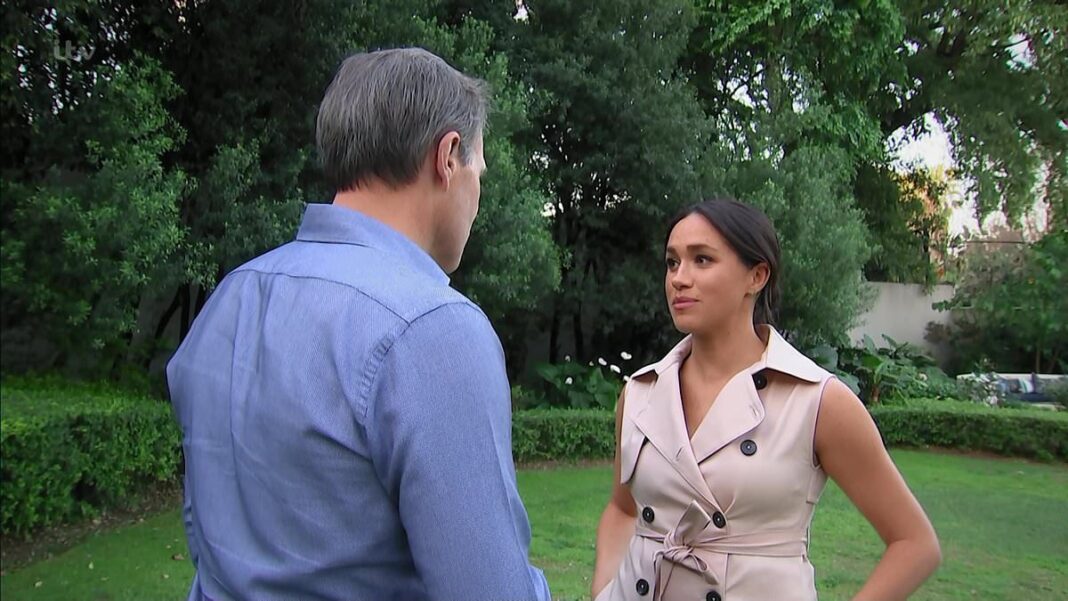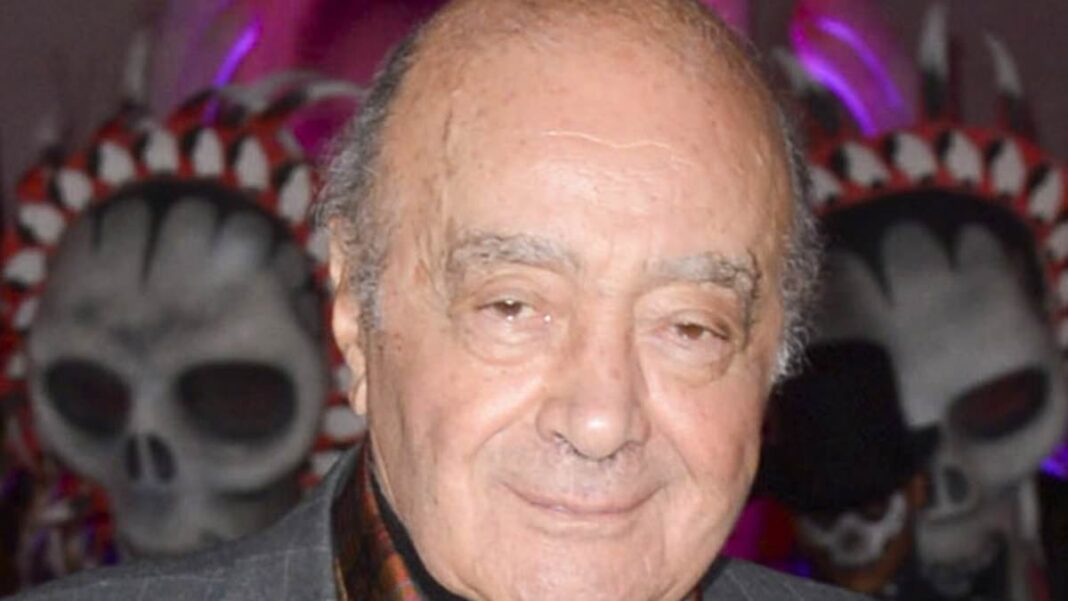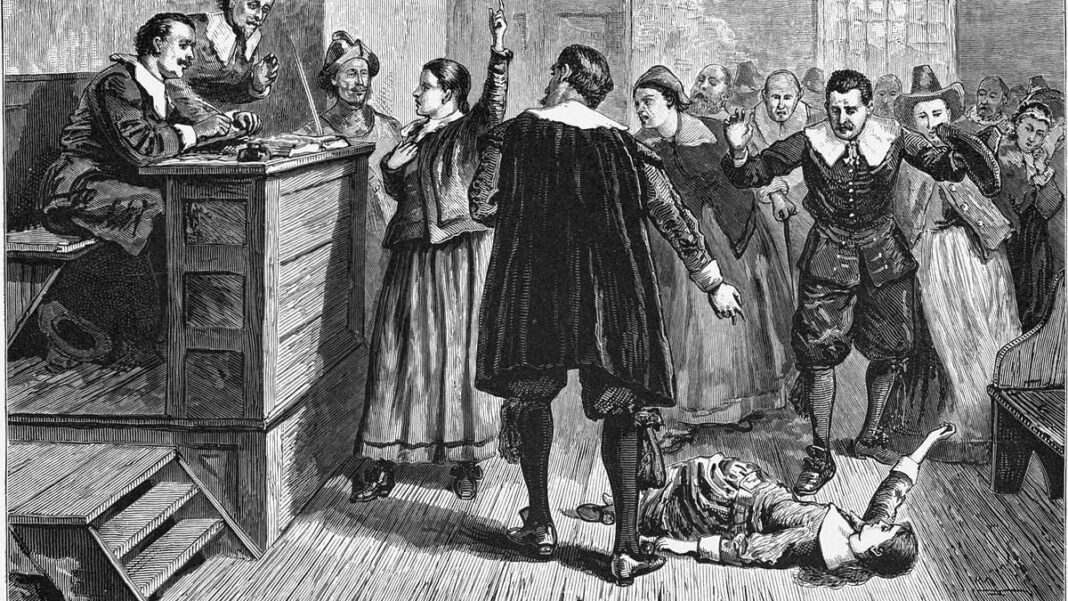It’s 5 years since Meghan and Harry’s ‘An African Journey’ aired……,
When Prince Harry and Meghan Markle eagerly agreed to welcome an ITV documentary crew on their first official overseas royal tour five years ago, it seemed like an easy public relations ‘win’.
After all, they were guaranteed a sympathetic hearing from ITV’s man with the microphone Tom Bradby, who is a trusted friend of Prince Harry and was a guest at their wedding.
Surely the resulting programme, ‘Harry & Meghan: An African Journey’ could not fail to show them to be conscientious and warm-hearted working royals?
And surely it would boost their profile as the modern, charismatic young faces of the Royal Family?
Instead, the film, which was first broadcast five years ago today, proved to be little more than a sad epitaph for their dream of a new life with one foot in Buckingham Palace and the other in the Hollywood hills.
Less than three months later, the couple were effectively cast out of the ‘Firm’.
They were stripped of their ‘Royal Highness’ titles and removed from royal duties after they unilaterally announced they wanted to step back.
They no longer wanted to be full-time senior Royals.
Instead, they were keen to spend more time in California, become financially independent and do only occasional work on behalf of the monarch.
So how did it all go so wrong, so quickly? And what role did Tom Bradby’s documentary play in their sudden estrangement?
Certainly, their trip to Africa couldn’t have been better designed to showcase Harry and Meghan’s caring credentials.
With the encouragement and approval of the Foreign Office, the couple flew to Cape Town with their infant son Archie and began a whistle-stop tour that also took in Botswana, Malawi and Angola.
There, Harry paid tribute to his mother’s campaigning zeal by visiting initiatives aimed at removing the millions of landmines that have littered the country since its bitter 25-year civil war.
The cameras were rolling as the couple focused on heartbreaking humanitarian issues in a region where millions remain trapped in dire poverty in ramshackle shantytowns and where life expectancy rates are among the lowest in the world.
The programme makers must have been delighted when Meghan met young women in Nyanga township, the so-called murder capital of South Africa
‘I am here with you as a mother, as a wife, as a woman, as a woman of colour and as your sister,’ she informed a small crowd at a women’s centre.
Yes, she was a princess with a camera crew in tow and was free to drive away at any time in a heavily-armed motorcade, but her words seemed genuinely stirring and to offer her audience a vision of a more hopeful future.
But on closer watching, the documentary began to focus less on the work of chosen charities and the plight of Africa’s poor, and more on the film’s royal stars.
In fact, it soon became clear that both Harry and Meghan forgot the elementary rule of being a royal – that their duty is to reveal nothing about themselves and to focus attention on whatever it is they have travelled to see.
Perhaps their judgement was swayed by their distance from home or by their friendship with Mr Bradby, but it became disastrously apparent over the course of the documentary that the pictures of African tragedy – the women being given self-defence lessons to combat rampant sexual violence, the young people affected by HIV and AIDS, the school-age landmine victims and so on – were not necessarily at the forefront of Harry and Meghan’s minds.
In a scene shot at twilight in the African veldt, Harry opened his heart.
Asked by Mr Bradby if he felt at peace about his mother’s death in 1997, he said: ‘I think probably a wound that festers.
‘I think being part of this family, and this role, and this job, every single time I see a camera, every single time I hear a click, every single time I see a flash, it takes me straight back.’
Similarly, when Mr Bradby asked Meghan how she was, she teared up, saying: ‘Thank you for asking, because not many people have asked if I’m okay.
‘But it’s a very real thing to be going through behind the scenes.’
Again, it seems, she wasn’t complaining about bearing witness to the tragic human stories they had seen in Africa, but about the awfulness of people in the media being being mean to her.
But the crucial, killer revelation came from Harry, who confirmed when quizzed by Mr Bradby what many had long rumoured: that he and Prince William, brothers who were once so close, were now estranged.
‘Part of this role and part of this job, and this family, being under the pressure that it’s under, inevitably, you know, stuff happens,’ he said.
‘But look, we’re brothers, we’ll always be brothers. And we’re certainly on different paths at the moment, but I’ll always be there for him, as I know he’ll always be there for me.’
Certainly, many at court would have considered this admission, however vaguely worded, to be an unforgivable repeat of the sins of his mother Princess Diana, who was the first member of the family to break the strict Royal omertà and talk about private matters on TV.
In fact, Harry did not reveal the full truth, which was that the two princes had cut ties long before then and had not been on speaking terms before Harry and Meghan went to Australia a year previously in October 2018.
An indication of just how much the royals had invested in Harry and Meghan’s trip to Africa came in the accounts published the following year, which showed the 10-day tour was the most expensive royal trip of the year.
An astonishing £245,643 was spent on scheduled flights and a private jet for the couple and their entourage.
As it unfolded amid favourable press coverage, it was regarded by both government and the Royal Household as a great success.
But then, on the last day of the tour, Harry and Meghan issued a lengthy bombshell statement on their website, in which they whined about the press’s treatment of them.
The resulting storm ensured that any lingering goodwill from the tour evaporated in an instant.
And when a few weeks later ITV screened ‘Harry and Meghan: An African Journey’, reviewers were united in disbelief at the couple’s apparent self-absorption in the face of so much real pain and suffering.
Suddenly, the Sussexes seemed not so much the new, modern face of the Royal Family, but a pair of self-absorbed narcissists with deeply flawed judgement.
And while ‘Harry and Meghan: An African Journey’ was clearly nowhere near as much as a disaster as Prince Andrew’s car-crash TV interview with Emily Maitlis in 2019, or as earthshaking as Diana’s interview with Martin Bashir, it widely seen as an own-goal by viewers and critics on both sides of the Atlantic.
Before the film and the couple’s angry tirade and lawsuits, it would have seemed unthinkable that Harry and Meghan would ever be effectively blackballed from the Royal Family.
But after their TV documentary airing the family’s dirty laundry, the late Queen’s decision to cast them out rather than grant their wish to become part-time royals seems far more understandable.
Although, however hostile the critical and public reception to the film, it clearly went down well with Harry and Meghan.
The Duke of Sussex was so pleased by Mr Bradby’s sensitive handling of his and Meghan’s complaints about the problems in their lives, that he chose his old friend to open his heart to last year to in a televised interview that coincided with the publication of his memoir ‘Spare’.
Now, of course, Harry is reportedly seeking to build bridges with his father King Charles and with his brother, the heir to the throne.
One problem he may find difficult to overcome is that his gripes, unlike harsh words in ordinary family disputes, are not so easily forgotten.
They are on record in his book, in his sit-down interview with Tom Bradby and in Harry and Meghan: An African Journey. And they have been seen by millions.









